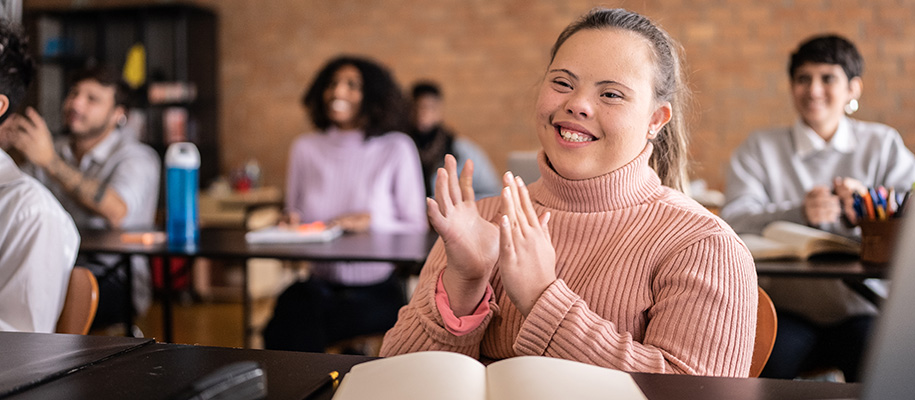College is a transitional time for most students. Adjusting to a new workload, a different set of teachers, and a diverse peer group can affect any student’s nerves. However, having a learning disability can make the process even more difficult. Juggling the common stresses of college on top of a disability may require additional help from the school and a solid support system. Because a college decision might be a determinant of one’s future and wallet, it’s important to do some research to choose a school that will give proper care and attention to LD students.
Going to college with a learning disability
A learning disability refers to a failure to grasp one or more of the basic psychological processes involved in speaking, listening, thinking, writing, or mathematics. In 2021–2022, about 15% of public school students had specific learning disabilities, according to the National Center for Education Statistics. These disabilities can manifest in elementary school, though some students don’t get diagnosed until adulthood, which often leaves them at a disadvantage when it comes to higher education.
However, many institutions are well equipped with counselors, psychologists, and professors who are able to accommodate students with a disability. For further support in the financial sense, many scholarships and financial aid opportunities are also available specifically for these students. Each state has a Vocational Rehabilitation Services department that provides funds and grants for job placements, career counseling, and training assistance.
Understanding your needs and requesting accommodations
Though many resources and professionals are available, it’s up to each student to understand their needs and take advantage of these resources at their college. Within the classroom, students with learning disabilities should implement strategies that can help with success in studying, managing deadlines, and communicating effectively. Outside the classroom, getting encouragement from roommates, friends, and romantic partners can also strengthen a student’s relationships and support system. Going to college can be an intimidating process when a learning disability is involved. However, certain tips and methods can help set a student up for success. Find out more with the infographic below.
College success for students with learning disabilities
- 11% of college undergrads have a learning disability.
- More than 200,000 incoming freshmen have some kind of learning disability.
- 17% of college students use learning assistance resources at their school (compared to 94% of high school students).
Different types of learning disabilities
- Auditory Processing Disorder/Language Processing Disorder: Difficulty processing sounds or spoken language
- Dyscalculia: Difficulty understanding numbers and making math calculations
- Dysgraphia: Difficulty writing legible letters and numbers; may include difficulty with skills such as organizing and planning
- Dyslexia: Difficulty with reading and spelling; may include difficulty with word recognition and reading comprehension
- Non-verbal learning disabilities: Difficulty with non-verbal skills such as reading body language or facial expressions; may include difficulty with social skills, motor skills, and memory
- Visual perceptual/visual motor deficit: Difficulty with hand-eye coordination
How to be successful in college
You have the right to “reasonable accommodations” for your learning disability. That may include:
- Having learning assistance (such as note takers, readers, or computer-assisted transcription)
- Having extra time to complete coursework and tests or to meet graduation requirements
- Recording classes so you can review them
Setting the stage for college success
- When choosing a college, ask what kinds of accommodations the school makes for students with learning disabilities.
- Talk to other students with similar learning disabilities at the school to learn what kind of accommodations they receive.
- Talk to your school’s student services department to learn what support they give students with learning disabilities.
- Talk to your professors/instructors at the college about your learning disability and ask for academic adjustments.
- If you’re considering an online program or classes, contemplate whether that program will work for you and what accommodations you may need. If you have trouble digesting digital course material, for example, you may need significantly more time to keep up with the course.
Related: Success With Learning Differences: Important Services Offered in College
There are a variety of resources available to help LD students make the transition from high school to college. The key is finding the school that fits, taking advantage of all available resources, and utilizing your own personal strategies and support systems. Success is within reach and well deserved!
Not sure where to start your search? Check out this list of Colleges Where Learning-Disabled Students Succeed, curated by admission experts.
Other sources
- 8 Steps for Learning Disabled Students Who Want to Go to College | U.S. News & World Report
- College Guide for Students With Learning Disabilities | BestColleges.com
- 10 Tips for College Students With Disabilities | NPR







